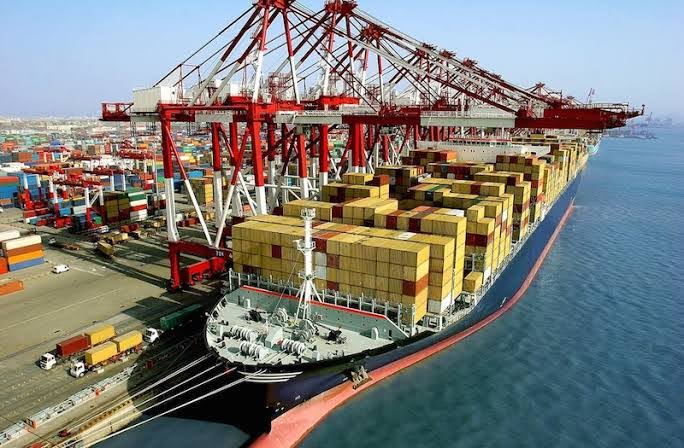FG’s Maritime Policy Meant to Spur Sector Growth – Minister

By Abbas Nazil
The Federal Government has reaffirmed commitment to boosting the growth of Nigeria’s maritime industry through the implementation of a comprehensive National Maritime Policy currently before the Federal Executive Council.
This was disclosed by the Minister of Marine and Blue Economy, Adegboyega Oyetola, during a panel discussion at the third Maritime Transportation Breakfast Meeting organized by the Nigerian Maritime Law Association (NMLA) in Lagos.
Represented by the Director of Maritime Services, Dr. Mercy Ilori, the minister stated that the policy would accelerate development in key areas such as fisheries, aquaculture, renewable energy, tourism, and seabed mining.
He emphasized that the policy would place the sector on a sustainable economic growth trajectory while also promoting environmental sustainability.
Oyetola described the national marine and blue economy policy as vital to the development of Nigeria’s maritime industry, aligning with global trends in ocean-based economic activities.
He noted that the policy framework is essential for unlocking the full potential of the country’s vast maritime resources and coastline.
Speaking on infrastructure development, the Deputy Chief Operating Officer of Lekki Deep Sea Port, Mr. Daniel Odibe, commended both the federal and Lagos State governments for improving road networks to enhance port accessibility.
He emphasized that efficient road connectivity is critical to optimizing port operations and unlocking growth.
According to Odibe, the Lekki Deep Sea Port has state-of-the-art scanning technology capable of handling 100 percent cargo inspection, though only 40 to 50 percent is currently scanned.
He highlighted the port’s rapid cargo scanning capability, which processes goods within 30 seconds of positioning.
Odibe further noted that Lekki Port began transshipment operations in 2024, moving cargo to Warri and exploring additional routes to Calabar and Onitsha.
These efforts aim to reduce pressure on road transport and improve distribution efficiency.
He also revealed that the port’s water draft of 19 meters, with 16 meters operational, allows it to receive larger vessels, and that its capacity has expanded to 90 hectares, supporting faster vessel turnaround times and increased throughput.
In his remarks, Senior Advocate of Nigeria and former NMLA president, Mr. Chidi Ilogu, called for the expansion of industrial waterway cargo infrastructure.
He proposed the establishment of barges across all coastal states to decongest Lagos ports and lower business costs.
Another Senior Advocate, Mr. Mike Igbokwe, praised the government’s use of public-private partnerships (PPPs) to enhance maritime infrastructure and advocated greater use of barges for multimodal cargo transport.
He also recommended improving rail connectivity to inland states to strengthen dry port operations and reduce the cost of goods nationwide.
NMLA President, Mrs. Funke Agbor, reiterated the association’s commitment to strengthening legal, institutional, and policy structures for a vibrant maritime sector.
She emphasized the importance of stakeholder engagement, advocacy, and capacity building to achieve sustainable development in the industry.
Agbor highlighted Nigeria’s strategic geographic location and extensive coastline as major assets that remain underutilized, stressing the need for robust policies, regulatory oversight, and private sector participation.
She noted that the breakfast series was designed to foster dialogue and collaboration among key players in the maritime and blue economy space.
